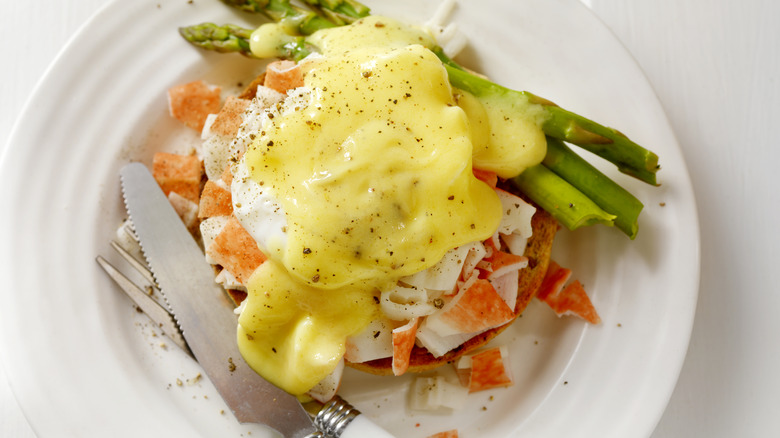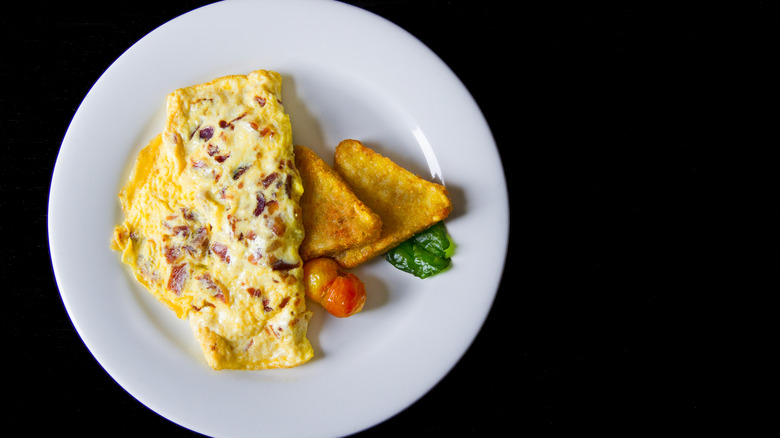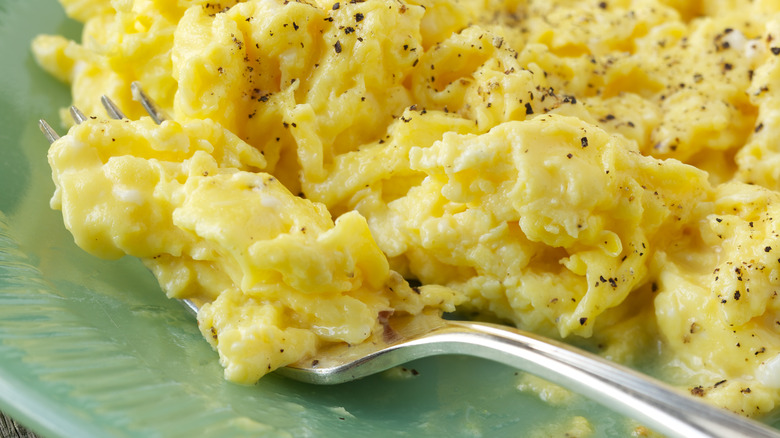For Warm Delicious Eggs, Heat Your Plate Up
We may receive a commission on purchases made from links.
When it comes to all-star ingredients, eggs are hard to beat. Eggs are still relatively cheap (despite price fluctuations over the past few years), they keep in the refrigerator for a long time, and they are equally comfortable as the main course or as part of a recipe.
Eggs are also the cornerstone of brunch culture, which has evolved from a trend to a standard service in the restaurant industry. If you've ever wondered why your eggs are always a little bit better when you go out to eat, there's a simple chef's trick you can do at home that doesn't involve any special techniques or ingredients: Warm up your plate before you plate up the eggs.
Restaurants, in general, make sure that all of the plates are warm before any hot food is plated and served so that the food is still hot when it gets to your table. This is especially beneficial for eggs, which are extremely sensitive to temperature fluctuations. If you want to serve restaurant-quality eggs, pop your plates into an oven heated on a low setting while you're cooking, and you can avoid having a cold, clammy egg experience ever again.
Eggs and temperatures
When it comes to cooking eggs, every second counts, and that goes double for temperatures. For example, an egg boiled to 62 degrees Fahrenheit will have a soft white and a runny yolk, while an egg cooked just 4 degrees hotter will have a firm white and a set yolk. Although most of us probably don't cook eggs while holding a quick-read thermometer, it's good to know that even a slight difference in heat can mean a very different finished egg. This is why Gordon Ramsay takes the pan off the heat when he's making scrambled eggs according to MasterClass, and Bobby Flay starts with a cold pan.
Even if you've cooked your eggs perfectly, there's still time to go wrong if you reach for a cold (or even room-temperature) plate. Eggs are delicate both before and after they're cooked, so when you serve your eggs Benedict on a cool plate, your perfectly poached eggs will immediately start to cool, and your hollandaise sauce (which is made with egg yolks) will start to congeal. The next time you go out to brunch, order some eggs and touch the plate when it hits the table; chances are, the plate (and eggs) will be nice and hot. This is because the chefs in the back want to make sure your eggs taste like they just came out of the pan.
Make the plates hot, but not too hot
If you're in charge of making brunch this weekend, before you start cracking any eggs, grab a stack of oven-safe plates and put them in the oven at the lowest temperature. This will heat your plates up gradually, while you're doing all your scrambling and poaching, and you can grab them one at a time as you plate because they'll be right there by the stove. Don't, however, turn the heat up to actual baking temperatures. Not only will the plates be too hot to handle (even after they get to the table), but they could get so hot that they'll actually keep cooking the eggs — which would be the death of a perfect over-easy. The goal is to keep the plates warm enough so that they're a little too hot to touch when they first come out of the oven, and will stay warm until they get to the table.
As an added bonus, hot plates will keep the rest of your brunch food hot and tasty while it travels from the kitchen to the table, and everyone likes hot toast, bacon, and biscuits and gravy. Warming plates before plating hot food is a super simple step that's a little bit invisible to your guests, but could lead them to proclaim after the meal that you make the best eggs ever.


